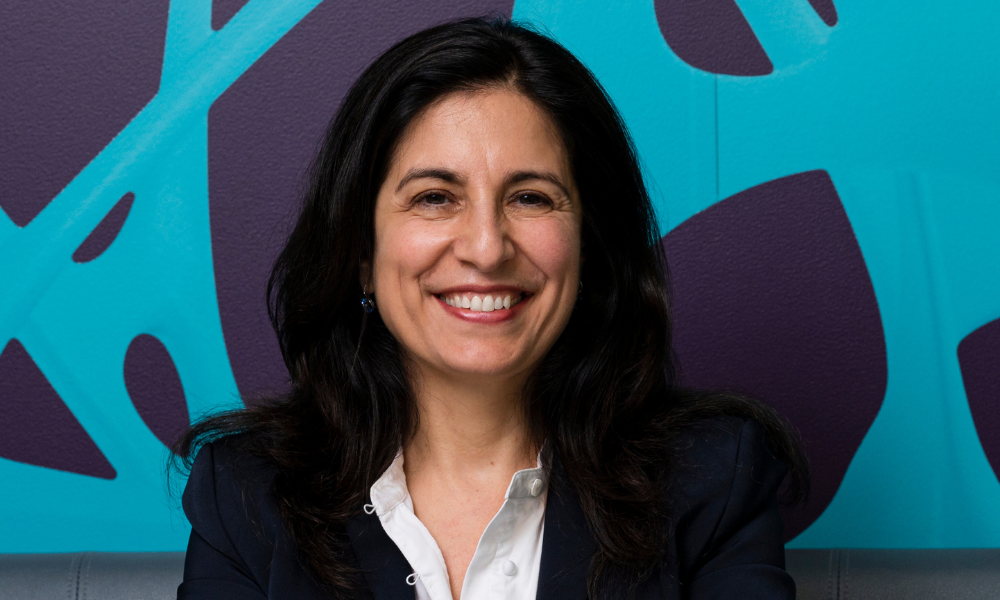As cognitive solutions enter into every aspect of a business, HR leaders ought to consider how these can enhance not just work processes, but also employee experience

With so much data afloat and an overload of potential business intelligence to process, ‘overwhelmed’ is starting to sound like the norm for workers and leaders in many organisations. This trend of endless data stream, coupled with the continuous technological disruptions and the changing demands of the labour market are all factors compelling HR professionals to level up and step forward, which they are beginning to do with the help of cognitive solutions. Simply put, cognitive solutions (or systems, or computing) are tech solutions that have adopted human-like approach/intelligence – can “understand, reason, and learn” – in order to help users analyze data faster and better.
According to a report issued early this year by IBM Institute for Business Value (IBV) and Smarter Workforce Institute (SWI), more and more CEOs and HR executives now recognise the invaluable impact of cognitive computing on HR processes, and HR professionals are beginning to tap into these solutions for three key areas – talent acquisition, talent development, and HR operations.
The report highlighted key challenges that are best addressed by cognitive computing, with the first and foremost being ‘slow transformation of skills’. Moreover, of the HR executives surveyed in the study, the majority (72%) of those from outperforming organisations were quick to pinpoint L&D and workforce planning as key areas that are benefitting immensely from cognitive solutions.
It’s worth mentioning that the report highlights match up with the ‘digital’ strategy of the HR team at IBM Singapore. In HRD’s brief chat with country HR director Yi Ling Chionh about their accomplishments in HR tech, it appears the focus has been on learning and upskilling for both employees and the HR team.
“Our learning platform, ‘YOURLearning’, has built in cognitive capabilities that provide employees with personalised experience,” said Yi Ling. In a promotional video, the platform is described as being “like Netflix for your professional development, personalised with cognitive capability that understands just what you like”. The platform offers a plethora of hot learning topics, along with career roadmaps, and customisable channels for employees to tailor to their development needs, anytime, anywhere.
Yi Ling also mentioned a program catering specifically to the HR Team, acknowledging that the team also needs dedicated training in order to be properly equipped to help the rest of the employee base.
“IBM HR recently launched the HR Digital Skills Accelerator, an exciting new development experience for all in the HR community,” Yi Ling said. “We continuously innovate in the way we support the development and growth of our employees. HR Digital Skills Accelerator is designed using Design Thinking approach, putting HR employees at the center, looking at the experiences we want to have and how we want to learn.”
The content incorporated in the digital skills accelerator covers a wide range of foundational and multidisciplinary knowledge, and is presented in various forms such as videos, blogs, wikis, publications covering internal and external perspectives, and gamification.
The key to its success, Yi Ling said, was having good data analytics as the foundation. Yi Ling added that the team has done a lot of work around inferring employees’ skills and propensity to learn, all of which are again powered by cognitive solutions. “Through data from employees’ digital footprint, cognitive analytics is applied to the data and produces inferred skill levels for each employee, to support managers in working with employees to upskill and learn.
“We also use social sentiment tools to tap into our internal social media data, as well as data from the pulse survey, to gain insights into employee engagement. With this, leaders have quick access to employees’ voices, which can support them in decision making.”
Yi Ling summed up these efforts as part of HR’s initiative to embrace the digital and stay ahead of the game. “These days, we are surrounded by exciting digital experience in our daily lives, be it payment transactions, booking of flights and accommodations, use of private car hires, etc. All these new experiences have set new standards in user experience. Likewise, employees will expect similar experience from HR systems, and we need to stay ahead of this expectation.”
According to a report issued early this year by IBM Institute for Business Value (IBV) and Smarter Workforce Institute (SWI), more and more CEOs and HR executives now recognise the invaluable impact of cognitive computing on HR processes, and HR professionals are beginning to tap into these solutions for three key areas – talent acquisition, talent development, and HR operations.
The report highlighted key challenges that are best addressed by cognitive computing, with the first and foremost being ‘slow transformation of skills’. Moreover, of the HR executives surveyed in the study, the majority (72%) of those from outperforming organisations were quick to pinpoint L&D and workforce planning as key areas that are benefitting immensely from cognitive solutions.
It’s worth mentioning that the report highlights match up with the ‘digital’ strategy of the HR team at IBM Singapore. In HRD’s brief chat with country HR director Yi Ling Chionh about their accomplishments in HR tech, it appears the focus has been on learning and upskilling for both employees and the HR team.
“Our learning platform, ‘YOURLearning’, has built in cognitive capabilities that provide employees with personalised experience,” said Yi Ling. In a promotional video, the platform is described as being “like Netflix for your professional development, personalised with cognitive capability that understands just what you like”. The platform offers a plethora of hot learning topics, along with career roadmaps, and customisable channels for employees to tailor to their development needs, anytime, anywhere.
Yi Ling also mentioned a program catering specifically to the HR Team, acknowledging that the team also needs dedicated training in order to be properly equipped to help the rest of the employee base.
“IBM HR recently launched the HR Digital Skills Accelerator, an exciting new development experience for all in the HR community,” Yi Ling said. “We continuously innovate in the way we support the development and growth of our employees. HR Digital Skills Accelerator is designed using Design Thinking approach, putting HR employees at the center, looking at the experiences we want to have and how we want to learn.”
The content incorporated in the digital skills accelerator covers a wide range of foundational and multidisciplinary knowledge, and is presented in various forms such as videos, blogs, wikis, publications covering internal and external perspectives, and gamification.
The key to its success, Yi Ling said, was having good data analytics as the foundation. Yi Ling added that the team has done a lot of work around inferring employees’ skills and propensity to learn, all of which are again powered by cognitive solutions. “Through data from employees’ digital footprint, cognitive analytics is applied to the data and produces inferred skill levels for each employee, to support managers in working with employees to upskill and learn.
“We also use social sentiment tools to tap into our internal social media data, as well as data from the pulse survey, to gain insights into employee engagement. With this, leaders have quick access to employees’ voices, which can support them in decision making.”
Yi Ling summed up these efforts as part of HR’s initiative to embrace the digital and stay ahead of the game. “These days, we are surrounded by exciting digital experience in our daily lives, be it payment transactions, booking of flights and accommodations, use of private car hires, etc. All these new experiences have set new standards in user experience. Likewise, employees will expect similar experience from HR systems, and we need to stay ahead of this expectation.”





